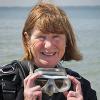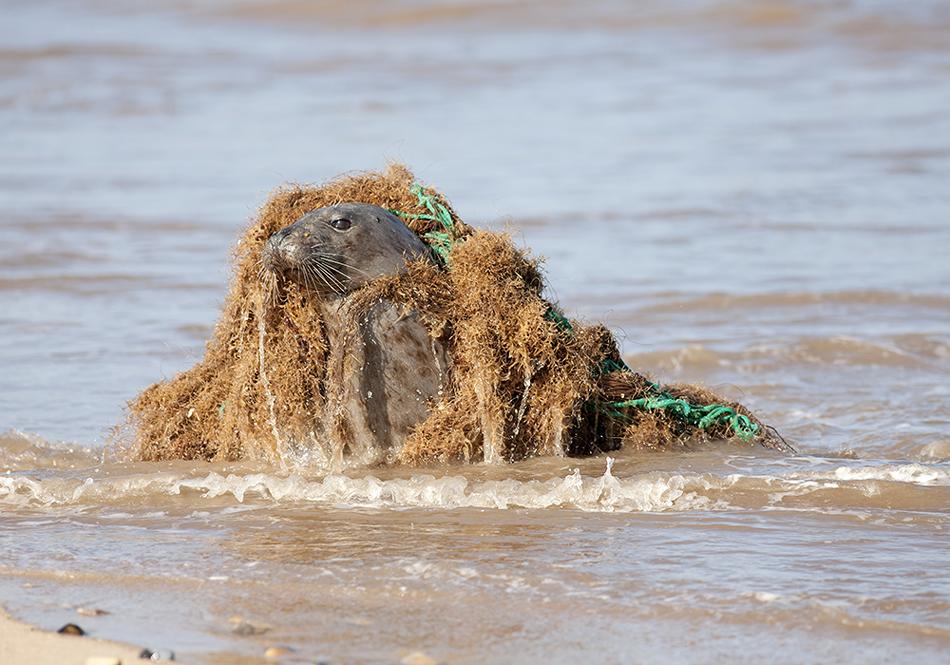
Image courtesy of Mark Harris
2022 was a sorry summer for many coastal and river communities, thanks to the stomach-churning number of sewage discharges. BSAC National Diving Committee (NDC) member Jane Maddocks investigates the issue.
This year has seen quite a bit of publicity around discharges of untreated sewage into the sea and rivers. Clean seas and rivers are important, and untreated sewage discharging into either is not good news, especially seas that we dive in.
The next few paragraphs should not really be read while enjoying a nice breakfast or tasty lunch. Hopefully it will provide background before we decide together, as BSAC members, how we would like to make sure our government and environment organisations stay on top of a very serious environmental challenge.
The issue is simple to me: no untreated sewage should be in the sea for any reason other than a major emergency, and preferably, not even then. Our water companies should be capable of treating all sewage before it arrives on our dive sites.
What is sewage?
You’re probably thinking it’s just the stuff that goes down the toilet, although in the broadest sense ‘sewage’ covers effluent from our homes, industry and agriculture too. Its basic constituents are biochemicals, suspended solids and a lot of ammonia. When we urinate we excrete what has been digested by our bodies and used. The waste products, not used by our bodies, are expelled when we defecate (sorry - but I warned you about eating as you read this.) If we are ill, the virus or bacteria which made us ill is defecated. Sewage can seem fairly straightforward, but it is not.
However, the Water Framework Regulations lists 50 substances that can be identified as pollutants. These pollutants get into our sewage system and end up being discharged into the sea. They are varied: metals, phosphates, nitrates, solvents, and pharmaceuticals to name just a few. Some get there because we eat them. Some because we eat food that has been treated with chemicals, or leached through soil that has been fertilised. Some because we have a headache, or need medical treatment, and some because we simply enjoy ingesting them, and even some because we want to embrace certain lifestyle choices. Others are from industrial processes to make products that we use every day.
The challenge for our water companies as they try to make sure all discharges are treated is to find ways to prevent chemicals from being introduced into the sewage system, and to remove them when they escape the initial screening.
Overwhelmed
Historically our storm overflows combine sewers (body waste, lavatory paper, special wipes and hygiene products plus dirty water from washing machines) and surface water drains following a period of heavy rain producing a lot of surface water. There are moves to improve this, by creating separate systems for sewage and surface water, but this will take time as we move away from our Victorian sewer system.
In 2022 there were 62 serious pollution incidents, and the Minister for the Environment has proposed a £250 million fine cap for water companies that discharge improperly.
English water companies have also been asked to write to the Environment Minister detailing their programme for improving their environmental performance and infrastructure. All water companies have complied and the plans are being scrutinised.
The tide is turning
After a recent series of stomach-churning incidents, there are signs the public is finally becoming aware of (and outraged by) sewage overflows.
In my opinion it is really important that we, as BSAC members, should stand up to be counted. We snorkel and dive in the waters which are polluted, putting us, and the natural environment we are enjoying, at harm. We need to keep the issue of water quality alive in the political arena - so we will need your help. We are considering how to get a really good campaign going focusing on improving the quality of our sea water and all ideas very welcome. If you send them to HQ that would be wonderful.
Useful tools and resources for divers
If you’re planning to dive or snorkel, particularly after rainy weather, it’s worth bookmarking the following websites:
- Surfers Against Sewage – check water quality alerts on the interactive map
- The Rivers Trust – a good place to start before entering any inland waters
- Environment Agency – you can report sewage pollution directly
And finally…
On a personal level I am making sure that nothing other than what has been eaten or drunk, together with toilet paper goes into the loo. All other products go in the bin!
I am checking that my washing machine discharges into the dirty water system, and I am reducing the amount and type of chemicals I use to wash clothes, hair and general hygiene, looking for environmentally sensitive alternatives. I am continuing to wipe oil and fat used in cooking onto paper towels and putting them in the bin rather than letting them go into the drains to produce a new version of Fatty McFatberg, the largest fatberg found so far in England. Fatbergs are huge fat lumps that block our drainage and sewage systems. Fatbergs cost water companies millions of pounds a year that could be spent on improving the waste-water infrastructure.
Fatty weighed 130 tonnes, the same as 11 double decker buses, was 250 metres long and took two months to break down. That is a lot of cooking fat.
Enjoy your lunch!

 Author: Jane Maddocks | Posted 20 Oct 2022
Author: Jane Maddocks | Posted 20 Oct 2022



